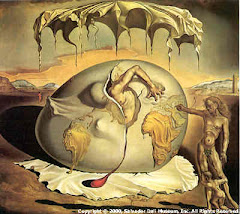One can do this either by revising the moral principles when they conflict with strong moral intuitions about cases, or by setting aside certain of our moral intuitions when they conflict with what our ethical principles predict should be regarded as the morally correct judgment. One must approach this task with an open mind and be willing to regard at least some of one pre-analytic moral intuitions as fallible or illusory, and also be willing to revise or even abandon
one's proposed ethical principles when they are incapable of being squared with our robust moral intuitions. There is, of course, no reason why one cannot employ both top-down and bottom-up kinds of reasoning in this kind of endeavor and this is the way in which I shall proceed.
My aim in the next chapter is to present a moral principle, which I will call the Vulnerability-Care Principle (VCP) and to try to make the case that it is a plausible candidate for the status of a fundamental ethical principle. For the moment I only wish to convince my readers that the VCP is plausibly thought to be capable of accounting for a wide range of standard moral intuitions which normally conscientious moral observers have about a wide range of moral cases. If I am successful in this, it will not show that the VCP is true in any interesting sense. In order to gain further justification for accepting the VCP as a fundamental principle of ethics one needs also to supply a general rationale for why there should be such a principle of ethics, to show how accepting the VCP as basic helps to illuminate and explain certain moral issues for which we normally think that other ethical principles are more appropriate, and how it helps us to resolve conflicts and solve problems in ethical theory and applied ethics.
Like scientific theories, ethical theories can gain credence by demonstrating they are competitively supported by the available evidence and that they cohere with our considered beliefs in related domains of inquiry. So, for example, the theory of evolution in biology that assumes that extant species evolved over very long periods of time until they reached their present states, must cohere with theories in geology concerning the age of the earth. If the earth were in fact very much younger than is now generally believed, it would imply that either biological evolution would have to work much more quickly than is usually assumed, or that the theory of evolution is false or at least incomplete.
Normative ethical theories about our rights and responsibilities will ultimately have to cohere with theories in the social sciences and in psychology about the nature of social relations and human motivation. If the ethical theory that features the VCP or something like it turns out for one reason or another not to cohere with facts and reliable theories about these matters, then it would count against its feasibility as a fundamental principle of ethics.
So the attainment of a reflective equilibrium between ones ethical theory and a range of moral intuitions is only the first step in providing a rational justification for believing that the VCP, or any ethical principle, is indeed a fundamental principle in ethics. I am not suggesting that can provide such a justification at the present time, but am only attempting to present the VCP as a plausible candidate for this status.
Fortunately, there have been other thinkers who have explored much of the territory I plan to cover and whose guidance I will be relying on for much of what I will have to say about the VCP. In particular, Robert Goodin and Virginia Held have pioneered this approach to ethical theory, and, as will become obvious, I am greatly in their debt as concerns the task of demonstrating the plausibility of the VCP.
My specific contribution will be to attempt to go further than either of these authors and to show that, when properly understood, the VCP is able to provide an account of what we normally think of as the social responsibilities derived from human rights. If I am successful in showing how this is the case, then we will be in a theoretical position in which becomes possible to connect the discourse of human rights with the discourse of social responsibility, and to show how human rights are derived from social responsibilities rather than the other way around, as is normally assumed.
Having made the connection between social responsibilities and human rights, we will then be in a position to argue that the range of our social responsibilities is wider than only those that ground human rights, and extend the VCP to the bio-centric and intergenerational realms. If this is successful, then I believe that I will have succeeded in making the case that the VCP is a plausible candidate for a fundamental principle of ethics, one which when properly understood, can provide a common normative framework for a global ethics of the kind I envision.





No comments:
Post a Comment